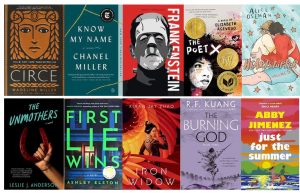 What your personality says about your strengths, weaknesses and talents
What your personality says about your strengths, weaknesses and talents
The ongoing debate between introversion and extroversion seems to be lingering on everyones minds. Campus events, classroom dialogue and social media display both individuals and the community’s curiosity about finding their own unique personality, and what this says about how they respond not only in the classroom but society as well. When we search for the answers, it is important to take this conversation to the next level. Let’s see what our personalities say about our strengths, weaknesses and natural talents.
If you are unaware of your personality, I recommend that you take the Myers-Briggs personality indicator. Well-known psychologist Carl Jung created it in the 1920s to describe our attitudes, functions and lifestyle into sixteen possible outcomes. I am an INTJ. What are you? Keep in mind, not every personality indicator will describe you to a tee. Take what you find beneficial or relevant, and then either discard what doesn’t apply to you or reflect on the variance between the description and your actions. You might uncover aspects of your personality that weren’t clearly brought to your attention or insight before. You spend 24/7 with yourself; the least you can do is figure out how you function, think and behave.
Although information about our personality is fascinating and useful, it doesn’t necessarily describe our strengths, talents or weaknesses, rather, it has the potential to foreshadow them. In order to use these terms successfully, we need to understand how strength, talents and weaknesses are defined. Strengths and talents are often used as interchangeable vocab but have separate meanings. A talent is a natural way of thinking, feeling or behaving, whereas a strength is something you’ve developed and can consistently demonstrate, like a skill. Most strengths arise from fine-tuning our talents, but they also can surface over time on something we once considered a weakness.
I discovered mine via “StrengthsFinder 2.0,” a popular book by Tom Rath with an online assessment that personalizes your top five talents based on given responses as well as suggests tips on how to incorporate them into strengths, so that your leadership resembles your full potential. With thirty-four themes available, my top five are responsibility, command, learner, achiever and belief. What are your strengths or talents? Keep in mind, you don’t necessarily need to take a test to figure these out, but the results can be interesting. When vocalizing your strengths with another, realize that shared strengths vary from person to person. Even though there are similarities within a defining strength, you might approach or express responsibility differently from me, and that’s okay.
Also be comfortable with not being perfect or having everything come naturally to you. Everyone has weaknesses, but you shouldn’t allow them to defy or overshine your capabilities of presenting your strengths and talents. Keep in mind, considered weaknesses might be a strength one day. Like a muscle they can be improved but it takes time, repetition and endurance to hone your considered weaker set of skills into strengths. However, I’ve found that this is time consuming and mentally draining. Personally, I’d much rather focus on my strengths than constantly develop my weakness. Depending on the person you talk to, this way of thinking could be either spot on or completely in left field. Every person approaches tasks differently, and accepting or acknowledging what others “bring to the table” is a strength within itself. It is our experiences and continual absorbance of knowledge that shape the strengths, talents or weaknesses that we posses. They can change from year to year slightly as we grow with every challenge or task brought upon us. How have you grown? Have you noticed a change over time in your strengths or considered weaknesses?
Knowing your strengths and how to use them successfully is crucial in approaching any task, leadership or work position. I guarantee that when interviewing for a position, agencies will inquire what strengths you possess and want to know examples for how you implemented them. While in college, realizing your strengths and finding jobs or internships to hone these skills is crucial in preparing a foundation for your upcoming future. While it is good to be well rounded, having a clear, concise and developed background or focus will better allow your natural talents or strengths to thrive.
We shouldn’t, however, embrace the idea that “you can be anything you want to be” because in reality, you can’t. Sure, hard work and a good attitude can get you places, but if it isn’t a strength of yours or something you find enjoyable, why put yourself through it? Not everyone has the ability to fill every position, and a person shouldn’t pretend or pursue something that blocks his or her happiness or full potential. So, students don’t pursue or force a field of study just because of the money or pressure from your parents. Find something you truly love and something that comes naturally, and that will bring you more overall happiness. To the parents reading: Support your children and embrace their strengths. We all want to see our children and ourselves succeed, but there is not a universal marker to determine or define the term of success. It is different for every individual, and there are multiple methods, interpretations and strengths used to reach it.
Personally, I know I wouldn’t enjoy a job that required consistently using woo (winning others over), empathy or competition because these are not in my pool of strengths. That doesn’t mean I cannot express these, but still, they do not come easy for me, in fact, they are rather exhausting. Although aspects of my job might call for using them, they’d hopefully be minimal and a majority of my work would be based on embracing my talents, skills and strengths. So, does my introverted personality resemble or foreshadow my strengths, talents and weakness? Possibly. Does yours? To quote Tom Rath, “You cannot be anything you want to be but you can be a lot more of who you already are.” So play off of your strengths as you’re more likely to see your overall success and happiness continually grow.
Asking what type of personality has an advantage in a classroom, but it only tackles the issue at its surface level. Taking the conversation to the next step would be assessing whether our class structure or assignments allow for multiple strengths or talents in which to thrive. If yes, then do students realize their strengths or talents and know how to use them to achieve their full potential? Sure, there are resources on campus such as the Career Center, Parke Student Leadership, or LeadNow opportunities where students can inquire about this information, but is it actively taught to everyone admitted? Studies have shown that a person is six times less likely to do a good job when they are not working with their strengths. If we don’t provide diverse opportunities for students to use their strengths in the classroom, how can we expect them to reach their full potential if there is not equality in which one can apply his or her strengths? Do certain majors, jobs or course subjects only allow certain strengths to succeed or thrive?
Remember we all approach things differently and bring an array of strengths, talents or weaknesses to the table. In a society that consistently demands group work, knowing and delegating tasks to suit everyone’s strengths is proven to create better results, higher overall happiness and greater group cohesiveness. If possible, find others who have strengths in areas that you consider a weakness. Maybe your strengths will cover their weakness. Now, wouldn’t that be ideal?
As you can see, it takes a variety of strengths, talents and personalities to make things happen. Knowing yours and knowing how to use them effectively is crucial in reaching your full potential and overall happiness. Reflect upon who you are, and embrace your given strengths. Remember to acknowledge weaknesses, but don’t let them define who you are. You might have immense potential and not even realize. How will you use your perspective, personality, talents and strengths to positively influence the affairs of the world?





Carl Jung did not create the Myers-Briggs personality test. It was actually created by a person named Myers and a person named Briggs (mother and daughter). They based it on Jung’s theories about personality.